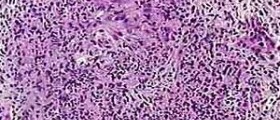Coughing up blood in the morning is not a pleasant thing to experience. Our body is designed to expel any foreign substances from the body by coughing phlegm and there is nothing strange about that process. However, sometimes phlegm can have traces of blood in it and this is what people see as a possible sign of a serious condition.
Doctors refer to blood in the phlegm as hemoptysis and there are several reasons for coughing up blood. Sometimes the cause can be as simple as the nosebleed and this should not be bothersome. However, some of the causes of hemoptysis can be serious, such as different lung diseases and these must be checked out, controlled and treated by your doctor.
What Causes Blood in Phlegm?
Any bleeding happening somewhere in the respiratory tract can provoke blood in the sputum. Allergic reactions or serious bacterial infections of the throat can damage blood vessels in the respiratory tract and cause this problem.
Lung problems such as bronchitis, asthma, pneumonia, various lung infections or bronchiectasis can be blamed for the blood found in the phlegm. Lung and cystic fibrosis, pulmonary embolism, tuberculosis (TBC), lung abscesses, lung cancer or emphysema can also provoke the same problem.
Different cardiovascular problems like congestive heart failure, mitral stenosis or regurgitation and arteriovenous malformations may be the reasons of blood in phlegm. Problems with blood clotting may also lead to blood in phlegm in the morning.
Heavy smokers must not neglect the presence of blood in their morning sputum and the same goes for people noticing thick bloody mucus. Both groups of people must visit their doctor as soon as possible to diagnose their problem properly and avoid any potential complications.
Treatment Options
The doctor needs to examine the patient with blood in phlegm properly and diagnose the cause of it before prescribing any treatment. Treatment options depend on the cause of blood in phlegm, so the doctor needs to find out what is the underlying cause of this.
Such people should make sure to report all of their signs and symptoms to the doctor and should not forget to mention anything they are experiencing. For example cough, breathing difficulties, rapid breathing, tightness in the chest area etc. should all be reported to the doctor as these could be very important pieces of information to the doctor trying to determine the exact cause of blood in phlegm. Several blood tests and imaging techniques are commonly used to diagnose the condition after which your doctor will be ready to treat you properly, with medications or some other measures.
People experiencing bloody mucus must stop smoking. This habit increases the risk of possible complications and you should quit instantly. Proper hydration and healthy diet are also found to be extremely important for everyone suffering from this problem.
















Your thoughts on this
Loading...